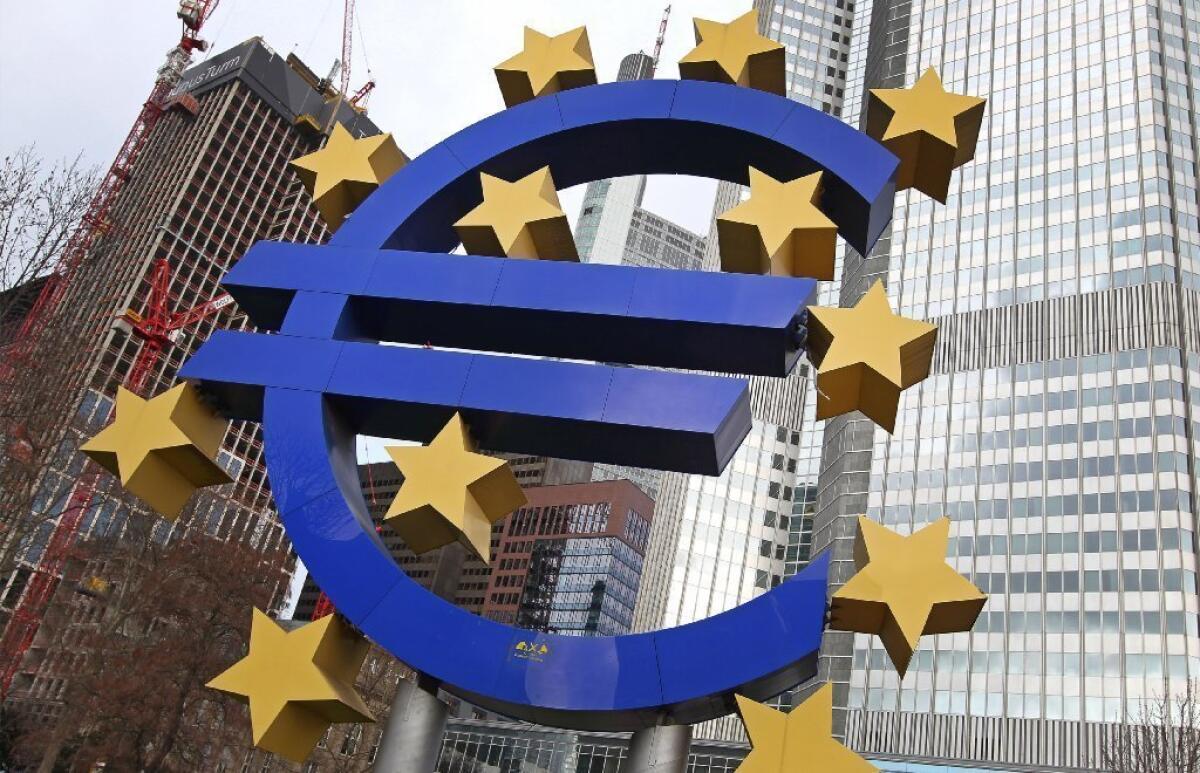Europe’s recession deepened in 4th quarter as economy shrank 0.6%

WASHINGTON -- Europe’s recession deepened at the end of last year as its economy shrank at an annual rate of 0.6% in the final three months, its sharpest contraction since the financial crisis.
The data for the Eurozone released Thursday was worse than analysts had expected, reflecting steeper-than-expected contractions for three of the region’s largest economies: Germany, France and Italy.
Germany’s economy shrank at an annual rate of 0.6% in the period after expanding at a 0.2% rate in the previous quarter.
Quiz: How much do you know about looming federal budget cuts?
“The decline of the gross domestic product at the end of 2012 was mainly due to the comparably weak German foreign trade: in the final quarter of 2012, exports of goods went down much more than imports of goods,” said Germany’s Federal Statistical Office.
Italy’s economy contracted at an annual rate of 0.9%, while the French economy shrank at a rate of 0.3%, according to Eurostat, the European Union’s statistical office.
The news from Europe comes after the U.S. recently reported its economy unexpectedly shrank 0.1% in the fourth quarter. Economists believe the U.S. contraction, the first since 2009, was an anomaly, driven in part by fears of the fiscal cliff and a drop in exports because of economic problems in Europe and China.
Other data, including the January unemployment report, indicate the U.S. economy still is expanding and growth is expected to pick up this year.
The 17-nation Eurozone, however, now has shrunk for three straight quarters. The fourth quarter contraction was sharper than the 0.1% drop in the previous quarter.
The October-through-December period was the worst for the European economy since a nearly 3% contraction in the first quarter of 2009.
Howard Archer, chief European economist for IHS Global Insight, said the report depicted a dismal end to a bad year. He had expected the economy to shrink 0.4%.
“While Eurozone economic activity saw its low point around last October, we suspect that growth will remain a struggle for some time to come,” Archer said. “However, it is looking increasingly possible that the Eurozone could at least stop contracting in the first half of 2013, significantly helped by a return to growth in Germany.”
“The hope for the Eurozone is that a sustained overall easing of sovereign debt tensions and generally improved financial markets further reduces uncertainties and steadily lifts consumer as well as business confidence,” he added.
ALSO:
Obama, European leaders working on trade deal
American Airlines-US Airways merger formally announced
Economy’s slight shrinkage late last year surprises experts
More to Read
Inside the business of entertainment
The Wide Shot brings you news, analysis and insights on everything from streaming wars to production — and what it all means for the future.
You may occasionally receive promotional content from the Los Angeles Times.











